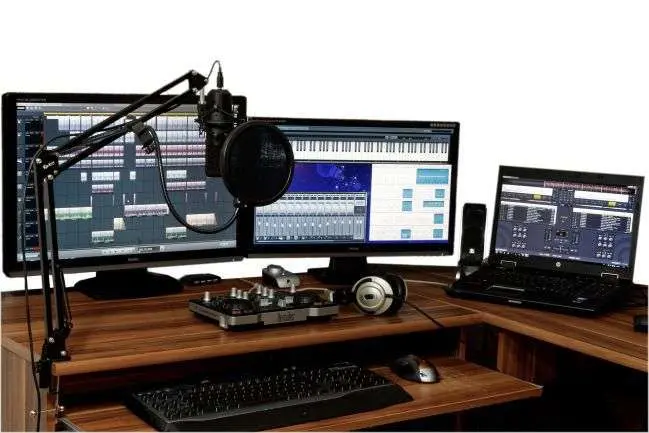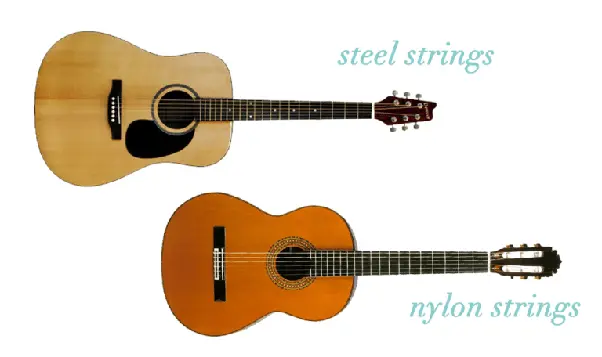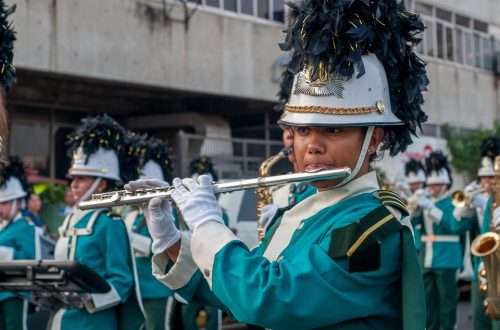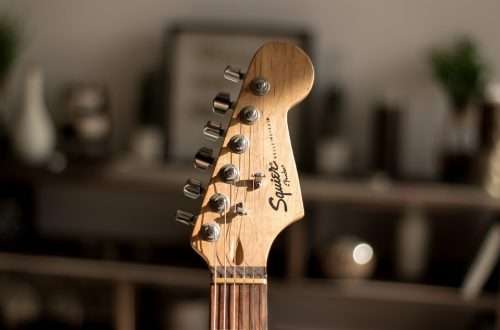
Studio equipment, homerecording – which computer for music production?
A PC intended for music production
An issue that will be dealt with sooner or later by every music producer. Modern technology is leaning towards the increasing use of virtual instruments and digital consoles, so the computer itself is playing an increasingly important role. As a result, we need newer, faster, more efficient devices, which at the same time will have a large disk space for storing our projects and samples.
What should a computer designed for music production have?
First of all, a PC designed to work on music should have an efficient, multi-core processor, at least 8 GB of RAM (preferably 16 GB) and a sound card, which seems to be the most important element of the entire setup. This is because an efficient sound card will significantly relieve the processor of our set. The rest of the components, apart from the naturally stable motherboard, a sufficiently strong power supply with a reserve of power, will not matter much.
Of course, we must not forget about cooling, which must be highly efficient to ensure the safety of components during many hours of work, which the future musician will undoubtedly experience. For example, the graphics card in music production is irrelevant, so it can be integrated on a motherboard called a chipset.

processor
It should be efficient, multi-core, and have multiple virtual cores.
It would be good if it was a product of the Intel i5 type, regardless of the specific model working on 4 cores, because that is what we will be able to use. We do not need more expensive, more advanced solutions, because, as mentioned above – a good sound card will significantly relieve the CPU.
RAM
In other words, working memory, it is a random access memory. While the computer is running, the operating system and currently running applications data are stored in the operating memory. In the case of music production, RAM is of great importance, because currently running virtual instruments occupy a large part of it and with a few demanding plugs fired at once, a resource in the form of 16 gigabytes is useful.
Back to the card
The sound card has several parameters that you should pay special attention to when choosing. The most important of these are the SNR, the signal-to-noise ratio, and the frequency response. In the first case, the so-called The SNR must have a value in the vicinity of 90 dB, while the bandwidth should reach the range of 20 Hz – 20 kHz. Equally important is a bit depth of at least 24 and the sampling rate, which determines the number of samples that appear per second as part of the analog-to-digital conversion. If the card is to be used for advanced operations, this value must be around 192kHz.
Examples
An example of a set that is more than enough for music production:
• CPU: Intel i5 4690k
• Graphics: Integrated
• Motherboard: MSI z97 g43
• COOLER CPU: Be Quiet! Dark Rock 3
• HOUSING: Be Quiet! Silent Base 800
• POWER SUPPLY: Corsair RM Series 650W
• SSD: Crucial MX100 256gb
• HDD: WD Carviar Green 1TB
• RAM: Kingston HyperX Savage 2400Mhz 8GB
• A good-class sound card
Summation
Choosing a computer to work with music is not a simple matter, but any aspiring producer will eventually have to face it when his old setup is no longer able to cope.
The set presented above will easily meet the requirements of most DAWs, and for the money saved by resigning from a higher-class processor or a non-integrated graphics card, we can buy home studio equipment, e.g. a microphone, cables, etc. which will certainly bring us much greater benefits.





